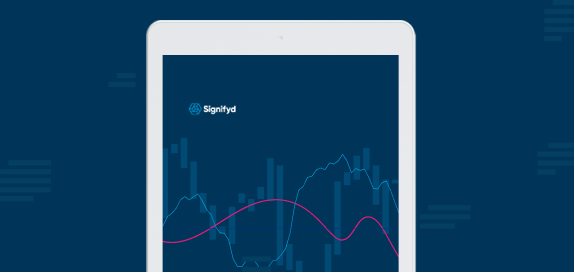Retailers have watched the shape of the holiday shopping season shift for years. Mostly it’s been getting longer, starting in the dead of summer and stretching into January — aka the returns and the gift-card redemption season.
2024 marked an acceleration — or at least a further alteration — in the changes that have been building for years. Look no further than the recently completed Cyber Week, which registered record online sales on Black Friday and Cyber Monday, but saw modest overall growth over Cyber Week 2023.
Depending on your source, U.S. ecommerce sales from Thanksgiving through Cyber Monday increased by roughly 6% to 8% — Adobe called it 8.2%, Salesforce said 7% Signifyd’s data showed 6%. Each company relies on different data sets and different methodologies, so the divergence is understandable, but the story the numbers tell is the same.
Cyber Five 2024 ecommerce sales compared to 2023 |
| Luxury goods | 13% |
| General merchandise | 12% |
| Grocery | 12% |
| Fashion and apparel | 9% |
| Leisure and outdoor | 6% |
| Home goods | 0 |
| Beauty and cosmetics | -4% |
| Electronics | -7% |
| All categories | 6% |
Ecommerce saw strong Cyber Week growth, but nothing like the week before
Ecommerce had a strong showing in what’s sometimes called retail’s Super Bowl. Signifyd’s Cyber Five Globe tracker showed that consumers on Black Friday spent nearly four times as much online as on an average day in 2024. On Cyber Monday, they spent just over three times as much.
Despite the relatively strong showing, the numbers also provided more evidence that while Black Friday and Cyber Monday are still the holiday shopping leaders, their lock on consumers’ attention is waning
Black Friday and Cyber Monday are still crucial given the sheer volume of sales they rack up. It’s hard to argue that a five-day period when, according to National Retail Federation CEO Matthew Shay, 75% of the U.S. adult population shopped, isn’t an important stretch for retail. (Interesting to note that the number of consumers who shopped online and the number who shopped in-store were nearly evenly split, according to the NRF.) But it’s also apparent that shoppers won’t wait for Thanksgiving to kick off their serious shopping.
Online sales leading up to Cyber Week grew 15.7%
“We saw a dramatic year-over-year boost in ecommerce sales the week before Cyber Week — much bigger than the increase during Cyber Week itself,” said Signifyd Senior Data Analyst Phelim Killough. “Our data also showed that the number of significant deals doubled that week, offering the best prices of the year on a significant number of items. As we’ve seen for some time, consumers are not solely focused on Black Friday and Cyber Monday. Value-oriented shoppers will shop when they see the deals they like and when their busy lives allow.”
Ecommerce sales the week before Cyber Week soared by 15.7% year-over-year, according to Signifyd data, handily beating the growth seen during Cyber Week by anybody’s measure. And the percentage of items selling at their lowest price of the year increased to 20% from 11% the previous week.
The short shopping season likely pulled sales forward
The compressed time to shop between this year’s late Thanksgiving and Christmas also likely played a role in consumers’ prolific spending before Cyber Week, Killough said. He noted that shoppers are accustomed to intensifying their holiday shopping earlier in the month.
Despite the quirks of the calendar, shoppers are getting the job done this holiday season. As of last week, online sales for the holiday season were up 8% over last year, meaning Signifyd’s prediction for a 7% lift for the season as a whole remains on target.
The question now is what all this shape-shifting means for retailers going forward. For one thing, they can expect a strong December compared to a year ago. Some of that will be due to the fact that 40% of Cyber Week spending will fall into December this year. Last year, Cyber Monday and the Sunday before were both on November’s books.
Retailers might want to rethink Cyber Five promotion strategies
And it means for online merchants, it’s worth examining their Black Friday, Cyber Monday and promotional strategies. While some discounting on the big shopping holidays will no doubt be required, it’s possible that retailers can do just as well, or presumably better, by strategically pushing some of their best deals outside of the long-running red-letter shopping days.
Looking for help managing seasonal sales spikes? We can help.












